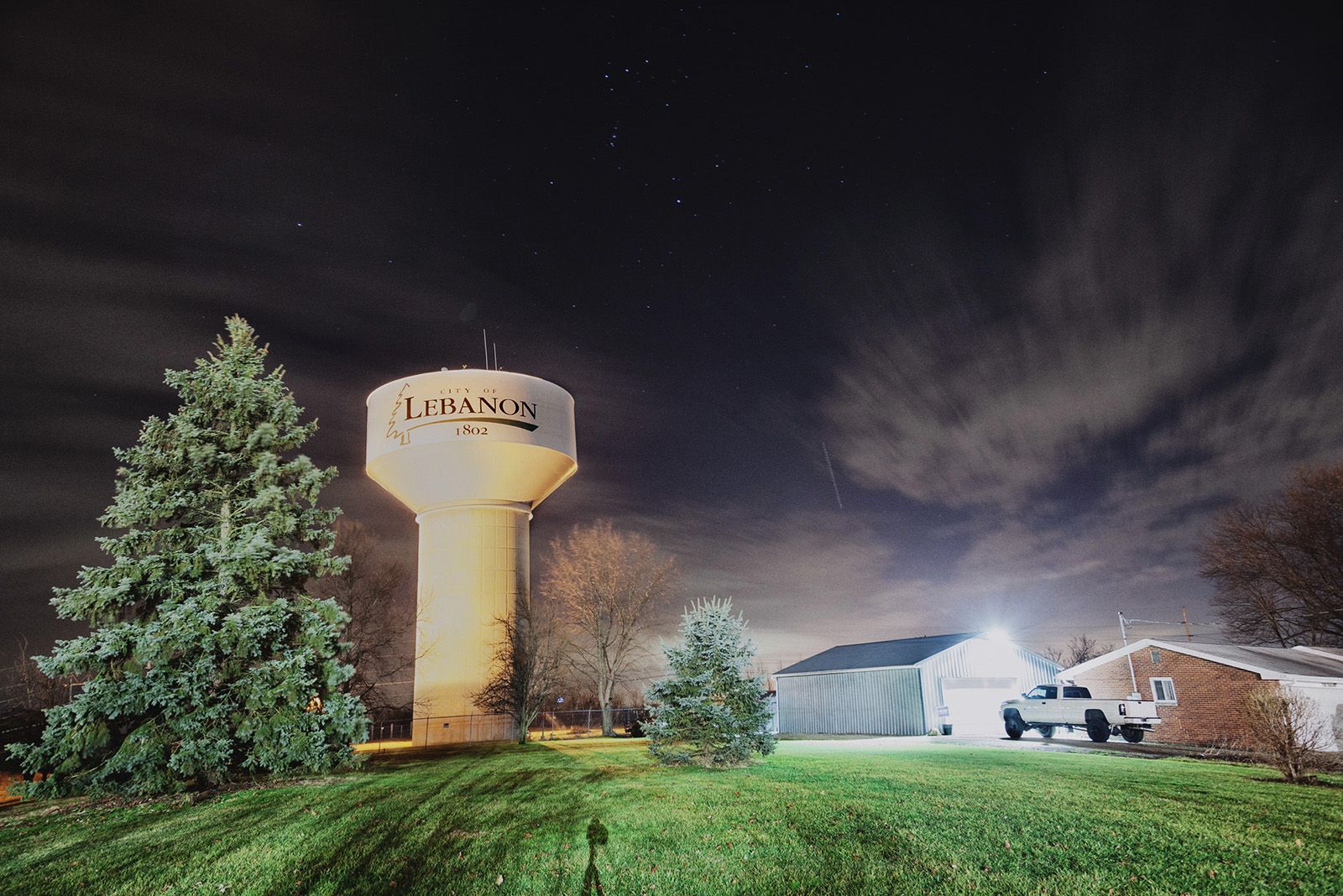The Promise,
which opens in UAE cinemas on Thursday, brings the story of the
massacre to the big screen for the first time, portraying a love
triangle between a hard-drinking but fearless American reporter
(Christian Bale), a young Armenian medical student from the countryside
(Oscar Isaac) and a cultured Armenian nanny (Charlotte Le Bon) at the
outset of the killings. The film has received mixed reviews from critics, with some panning it as cliched, and it tanked at the box office over its opening weekend in North America. But
that seems to matter little to cinema-goers in Lebanon, home to
hundreds of thousands of Armenians whose ancestors fled here to escape
the violence. Nor does it seem to matter that the characters lack depth
or that the tale is told through a decidedly American lens, with a focus
on the reporter character and English used throughout the film.
What does matter is that the massacre is portrayed as a genocide. Released in Lebanon just before the annual April 24 commemoration of the massacre, screenings of The Promise have been packed. Christ Kojamanian, 23, said he cried through two showings of the film during its opening weekend. “It’s very good, it’s an excellent movie,” he said. “There is so much bad stuff about the Turks – but it’s all real.” Mr Kojamanian said he hoped the film would raise awareness about the killings 100 years ago. “We
will keep fighting for the recognition of the genocide. We are waiting
for America to do it – they are the king,” he added. The United States
is among a majority of countries that do not recognise the killing of an
estimated one and a half million Armenians as genocide. Mr Kojamanian spoke to The National
at a gathering of thousands of Armenians in downtown Beirut on Monday
to commemorate the 102nd anniversary of the killings which are generally
considered to have started in April 1915. To
Lebanese Armenians, the massacre is more than a painful historical
event: It is the reason that most of them are here in Lebanon, hundreds
of kilometres from their ancestral homeland, and represents a battle
they are still fighting. Although the first Armenians to settle in
Lebanon arrived in the fourth century as Christian pilgrims en route to
Jerusalem, their numbers remained small until after 1915.
For Just $425, These Jeans Covered With Fake Mud Can Be Yours

If you have $425 burning a hole in your pocket and are
looking to purchase some new fashion for spring that will make you look
like you’ve slipped on a rainy day at a music festival, look no further.
Nordstrom
has you covered. The “Barracuda Straight Leg Jeans” are described as
“Heavily distressed medium-blue denim jeans in a comfortable
straight-leg fit embody rugged, Americana workwear that’s seen some
hard-working action with a crackled, caked-on muddy coating that shows
you’re not afraid to get down and dirty.”
So… they show you’re not afraid to get “down and dirty,” even though you spent $425 just so that you won’t have to actually get “down and dirty” in them. Mike Rowe, host of Dirty Jobs, took to Facebook
to absolutely skewer the pants, saying, “Finally – a pair of jeans that
look like they have been worn by someone with a dirty job…made for
people who don’t. And you can have your very own pair for just $425.00.” “They’re not even fashion,” he argues. “They’re a costume for wealthy people who see work as ironic – not iconic.” Fair point.
Read more
The Russians are using ‘a new style of attack’ against France’s frontrunner candidate

by Nathalie Bertrand — A hacking group linked by cybersecurity experts to Russia’s
military intelligence apparatus has begun taking aim at France’s
centrist presidential candidate, Emmanuel Macron, the
cybersecurity firm Trend Micro said in a report published on
Tuesday. On March 15, the group — known as Fancy Bear, Pawn Storm, Sednit,
APT28, Sofacy, or STRONTIUM — began registering domain names
like “onedrive-en-marche.fr” and “mail-en-marche.fr” in an
attempt to trick members of Macron’s campaign team into clicking
on links that looked affiliated with his political party, En
Marche.
“A huge revelation in this Trend Micro report is
that Fancy Bear has significantly upped the
sophistication of its cyber attacks,” said Greg Martin, the
CEO of cybersecurity firm JASK. “They’re taking advantage of
vulnerabilities in cloud-based email services like Gmail to trick
people into downloading fake applications, and compromising
their inboxes without even having to steal
a password.” Martin said that when targeted by this kind of attack,
known as “OAuth phishing,” the victim can’t just
change their password to regain access to their account. “It’s a new style of attack is very deadly and
unprecedented,” he said. “It’s the first time we have seen
this in the wild.”
A more primitive version of that phishing
technique was on full display during the US presidential
election. Emails stolen by Fancy Bear from the Democratic
National Committee and Hillary Clinton’s campaign chairman, John
Podesta, were fed to WikiLeaks and the website DCLeaks,
which is run by self-described hacker Guccifer 2.0, who
researchers believe was a persona created by Russian military
intelligence. “The cat got out of the bag in terms of the tools used in the DNC
cyberattacks, so Fancy Bear upped the ante this time around,”
Martin said.
Read more
De-risking green power

by Vahakn Kabakian – Executive — Lebanon’s energy sector is characterized by a significant supply-demand imbalance, continuing growth in demand
(5 percent per year), high generation costs (partly due to aging
infrastructure), and a lack of financial sustainability. Electricité du
Liban (EDL) cannot recover its operating costs and depends on the
Lebanese government to subsidize operations. In 2013, EDL received
transfers amounting to around $2 billion, corresponding to 4.5 percent
of the GDP – creating a significant strain on the country’s budget and
economy. Lebanon’s baseline energy mix is dominated by oil,
accounting for over 95 percent of generation. Renewable energy currently
accounts for 4 percent of the electricity produced in Lebanon,
predominantly hydropower, with less than 0.2 percent from solar
photovoltaic (PV).
Read more
How Labneh led Lebanon high on world health rankings
Lebanon has ranked as the healthiest nation in the Arab world, according to Bloomberg’s 2017
Global Health Index published last month.
The New Arab speaks to a highly acclaimed Lebanese food blogger to find out why. Despite its conspicuous
consumption of tobacco, Lebanon recently found a distinct badge of prestige after being ranked as the healthiest Arab country. The
six-million strong nation was placed first among Arab countries and
32nd out of 163 countries overall in the Global Health Index, which
measured life expectancy, causes of death and health risks. For highly acclaimed Lebanese food blogger Bethany Kehdy, the news
comes as no surprise and comes firmly as a result of the country’s world
famous cuisine. Lebanon’s much-reproduced Mediterranean diet
sees an abundant use of whole grains, fruits, vegetables and fresh fish,
with olive oil religiously replacing animal fat.
For the most part when we consider the Lebanese diet, traditional
cuisine and eating habits we notice that firstly and most importantly it
revolves around the season which means you’re eating food that is
fresh, and in its nutritional prime,” Kehdy, author of The Jewelled
Kitchen cookbook, tells The New Arab.
For Kehdy, nutritional variety is key to Lebanon’s healthy lifestyle.
“The [Lebanese] diet also revolves around vegetables with sprinklings
of meat with weekends dedicated to letting loose and enjoying a lavish
meat-laden grills. Fruits are also still celebrated and often as a form
of dessert,” she adds. Meals are mostly balanced and include copious amounts of garlic, olive oil and lemon juice. “A typical lunch is very balanced with a salad, stew, not overdosed
on meat and a good serving of grains. The diet also involves lots of
fermented foods – pickles and yoghurt always grace the table – so lots
of probiotics and natural digestive aids,” Kehdy says. She also adds that cultural habits, and especially light dinners, are key. “If we go back and really consider the traditional eating culture we
notice that dinners were often simply yoghurt and cheese which much
lighter and easily digestible in comparison to the balanced lunch of
stew, grain and salad. The old saying says: have lunch and nap, eat
dinner and walk.” As testified by hordes of customers filling Lebanese restaurants from
Rio de Janeiro to Tokyo, Lebanon’s cuisine had long ago found
world-wide fame.
Read more
Beirut’s heritage buildings threatened by urbanization

by Florence Massena
In Beirut, historical or heritage areas and buildings are being replaced by shiny tall buildings. The Red House, the Rose House and the Laziza Brewery are symbols of the lack of urban planning in the Lebanese capital, where heritage succumbs to money. On Feb. 3, Ghattas Khoury, the new minister of culture, issued decree No. 32, which removed the famous Red House
— in the Ras Beirut area in Hamra, in western Beirut — from the list of
protected buildings. It was only seven months after former Minister
Rony Araiji put the house on the list through decree No. 95 in July 2016. Reportedly dating back to the 18th century, the Red House is one of the oldest houses in Hamra and has a rich history.
Samir Rebeiz, a conservator who was born in the house and lived there
for 65 years, was expelled from it by members of his family who were
given the property by their elderly uncle. “After months of discussions,
I received a court order at the end of January 2016 telling me to
evacuate, so I did,” Rebeiz told Al-Monitor. “I don’t mind moving, but
the house was in perfect shape and condition. I was maintaining
everything — it’s my job after all — living in basic conditions and not
having done anything to modernize the house in order to keep it intact.” When the owners asked for a demolition permit
in January 2016, the Directorate General of Antiquities (DGA) — a
technical unit of the Ministry of Culture in charge of the promotion,
protection and excavation of all heritage sites of Lebanon — started an
investigation. In March 2016, it established that the Red House is a
part of the city’s cultural heritage and that it should not be demolished. The owners appealed this decision.
Rebeiz talked about acts of vandalism, saying, “I saw people who were
starting to dismantle the house from the inside, so I called the DGA,”
who sent the police. For a month, all was quiet. “But the windows and
tiles were gone as well as most of the decorations that made the house
valuable,” such as tiles, windows and arcades. In July 2016, the
minister of culture signed decree No. 95, but it did not stop the
vandalism.
Read more
Centrist Macron and far-right Le Pen lead first-round vote in French presidential election

PARIS (Reuters) – Centrist Emmanuel Macron, running on the “En
Marche!” platform, and far-right National Front leader Marine Le
Pen are set to face each other in a May 7 runoff for the French
presidency after coming first and second in Sunday’s first round
of voting, according to multiple projections. The result makes Macron most likely to become the next
president of France. Though Macron, 39, is a comparative political novice who has
never held elected office, opinion polls in the run-up to the
ballot have consistently seen him easily winning the final clash
against the 48-year-old Le Pen. Sunday’s outcome spells disaster for the two mainstream groupings
that have dominated French politics for 60 years, and also
reduces the prospect of an anti-establishment shock on the scale
of Britain’s vote last June to quit the EU and the election of
Donald Trump as U.S. president. The euro currency was quoted higher immediately after the first
projections were issued, with banks quoting the US dollar at
around $1.092 versus $1.072 on Friday evening, according to
Reuters data. In a race that was too close to call up to the last minute,
Macron, a pro-European Union ex-banker and economy minister who
founded his own party only a year ago, was projected to get 24
percent of the first-round vote by the pollster Harris, and 23.7
percent by Elabe.
Le Pen, leader of the anti-immigration and anti-EU National
Front, was given 22 percent by both institutes. At least three
further pollsters all projected broadly similar results. Macron’s supporters, gathered at a Paris conference center burst
into singing the national anthem, the Marseillaise, a few seconds
after results came through. Many were under 25, reflecting some
of the appeal of a man aiming to become France’s youngest head of
state since Napoleon. Le Pen, who is herself bidding to make history as France’s first
female president, follows in the footsteps of her father, who
founded the National Front and reached the second round of the
presidential election in 2002. Jean-Marie Le Pen was ultimately crushed when voters from right
and left rallied around the conservative Jacques Chirac in order
to keep out a party whose far-right, anti-immigrant views they
considered unpalatably xenophobic. His daughter has done much to soften her party’s image, and found
widespread support among young voters by pitching herself as an
anti-establishment defender of French workers and French
interests.
Read more
Lebanese authorities must pass a law on missing persons
Beirut, Lebanon. Forty-two years after the civil war began in Lebanon, the International Committee of the Red Cross (ICRC) calls on the Lebanese authorities to pass a law that will help clarify the fate of those who have gone missing during armed conflicts in the country since 1975. The ICRC also urges the authorities to […]
Read more
ISIS Militant Killed, 10 Arrested in Lebanese Army Raid Near Syrian Border
by english.aawsat.com, The Lebanese army intelligence on Saturday killed an ISIS leader and arrested ten terrorists after they came over the northeastern border from Syria, the military and the state-run National News Agency said. “An army unit carried out a swift raid at dawn today in Arsal, resulting in the arrest of 10 dangerous terrorists […]
Read more












